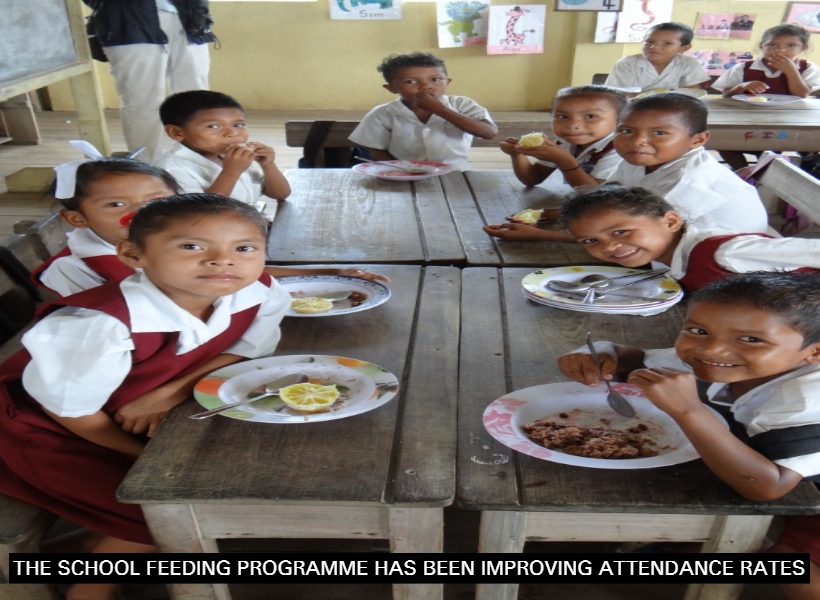While having trained teachers to deliver the education curriculum to students is crucial, the availability of a nutritious meal cannot be understated. In fact, this may determine whether the teaching/learning process is effective enough.
The government, cognizant of this, has been sustaining a school feeding programme through its Ministry of Education and the initiative is making positive strides.
In its half-year report, the government has ascertained that school enrolment and attendance continue to affect the learning outcomes of a
large proportion of the school-aged population. It noted, too, that data from 2016 indicate that less than 80 percent of this segment of the population was enrolled in school, and attendance rates were approximately 75 percent.
Recognising that this was due to its school feeding programme, the government has moved to expand the initiative in the hopes of seeing an even greater attendance rate.
“To improve enrolment and attendance, the school feeding programme was expanded in the first half of 2019, with the sum of $1.6B of the budgeted $3.6B spent,” the half-year report outlined.
With a community-based component, the school feeding programme provides meals to 214 schools in Regions One, Two, Seven, Eight and Nine to benefit over 26,000 children. With the expansion of the programme there has been an additional 935 students who now benefit this year.
Further, the report notes that the breakfast component provides for approximately 13,539 students in 118 schools across Regions Three and Four and Georgetown. Under this component, which is expected to be implemented during the second half of this year, 851 beneficiaries in nine additional schools are expected to be added in Region Five – Ithaca, Blairmont, Bath, Liberty Hall, Shieldstown, and Rosignol – and 435 beneficiaries in five schools in Region Six – Leeds, Mount Sinai and New Amsterdam.













